Official dispatch No. 5189 issued on August 30, 2024 to the Department of Health of provinces and centrally run cities on the use of Vitamin A in the treatment of measles in children.
Since the beginning of 2024, the number of measles cases and hospitalizations has tended to increase in some localities. Currently, the Ministry of Health has issued guidelines for monitoring, diagnosing, treating and preventing measles, in which Vitamin A supplementation for supportive treatment of eye-related diseases and malnutrition is necessary.
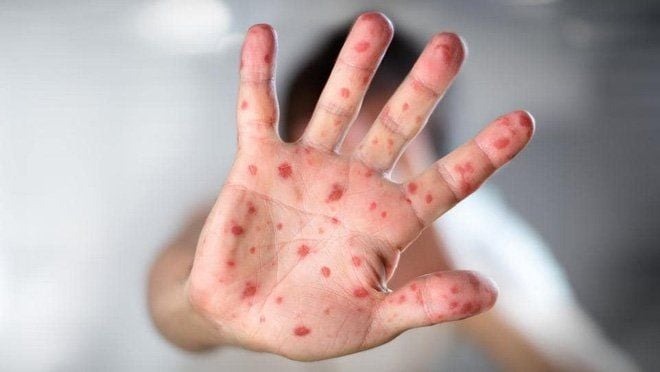 |
| Since the beginning of 2024, the number of measles cases and hospitalizations has tended to increase in some localities. |
The Ministry of Health requests the Department of Health of provinces and cities to direct the Centers for Disease Control of provinces and cities to allocate 100,000 units of Vitamin A capsules and 200,000 units currently in stock after the end of the first Vitamin A supplement campaign for children in 2024 to medical examination and treatment facilities that admit and treat children with measles in the area.
In case the amount of Vitamin A available locally is not enough to meet the demand, provinces and cities are requested to contact the Institute of Nutrition for additional supply.
Direct and guide medical examination and treatment facilities to use allocated Vitamin A to treat children with measles in the area according to the Guidelines for Diagnosis and Treatment of Measles issued in Decision No. 1327/QD-BYT dated April 18, 2014 of the Minister of Health.
Strengthen communication on measles prevention and control measures for people, including the role of Vitamin A in treating measles and preventing dry eye complications of the disease.
Regarding the measles epidemic in Ho Chi Minh City, since the beginning of 2024, Children's Hospital 1 has received and treated 368 children with measles. Of these, nearly 2/3 of the cases came from the southern provinces, 24.5% had underlying diseases and more than 50% were under 12 months old.
In particular, 42 children (11.4%) had severe complications requiring intensive care and 84.6% of seriously ill children had not been vaccinated against measles.
However, with appropriate approaches, clear plans and efforts of all hospital staff, treatment was effective and no child died.
High-dose vitamin A, intravenous immunoglobulin (IVIG) and some other drugs are needed to treat measles in children, especially measles with severe complications, which have been planned since the beginning of the year.
In addition, dopamine is a vasopressor drug used in cases of shock, circulatory collapse due to dengue fever or some diseases in newborns. This drug was also stocked from the beginning of the year, but it expired on August 15, 2024.
It is known that this Hospital has contacted the supplier and will be supplied in September 2024. While waiting for dopamine, the Hospital has proactively used other drugs with similar effects as a substitute.
Therefore, delaying dopamine supply during this period does not affect the treatment outcome of measles or other conditions requiring dopamine use such as severe dengue fever.
Faced with the above reality, Deputy Minister of Health Nguyen Thi Lien Huong requested the Drug Administration to investigate the drug import work of enterprises, ensuring adequate supply for hospitals, and preventing drug and vaccine shortages.
Previously, after the Ho Chi Minh City People's Committee announced a measles epidemic in the area, the city's health sector issued a plan to purchase measles-rubella vaccines. At the same time, the City Center for Disease Control was assigned to urgently complete procedures to purchase 300,000 doses of MR vaccine.
This is the vaccine being used by the National Expanded Immunization Program, produced by the Center for Research and Production of Vaccines and Biologicals (POLYVAC).
The vaccine is being transported by specialized vehicles from Hanoi to Ho Chi Minh City, and it is expected that by the end of Friday (August 30, 2024), the vaccine will arrive at the warehouse of the City Center for Disease Control, and be immediately distributed to districts.
It is expected that the Ho Chi Minh City Health Department will launch a measles vaccination campaign from August 31, 2024 (Saturday), and organize vaccinations during the National Day holiday on September 2, 2024.
Nationwide, the Ministry of Health has issued a plan to implement a measles vaccination campaign in 2024. This campaign will vaccinate children aged 1-10 in at-risk areas; medical staff at medical facilities treating measles patients who have not received enough doses of measles-containing vaccines as prescribed.
Priority is given to vaccination for the 1-5 year old group. The specific age group for vaccination is decided by provinces and cities based on the local epidemic situation, vaccine supply conditions, local resources and consultation with the regional Institutes of Hygiene and Epidemiology and Pasteur Institutes.
Localities will proactively investigate and make a vaccination list for children aged 1-10 years old, including transient children currently in the locality. Each child will receive 1 dose of measles-rubella (MR) vaccine.
Except for children who have been vaccinated with measles or MR vaccine or measles and/or rubella vaccine within one month before vaccination (with evidence of vaccination shown on the vaccination card, vaccination book, vaccination management software); children have received enough doses of measles-containing vaccine as prescribed.
The goal of this campaign is to increase the rate of measles immunity in the community to proactively prevent epidemics, reduce the incidence and mortality rate due to measles in risk areas, areas with measles cases and measles epidemics.
The specific goal is that 95% of children in the group who have not received enough doses of vaccine as prescribed in risk areas and areas with measles cases/epidemics are vaccinated with 1 dose of measles-rubella vaccine.
The vaccination period is the third and fourth quarters of 2024, to be implemented as soon as the vaccine is supplied. The scope of implementation in phase 1 is 135 districts in 18 provinces and cities including Ha Giang, Hanoi, Ha Tinh, Hai Duong, Nam Dinh, Nghe An, Gia Lai, Ho Chi Minh City, Dong Nai, Long An, Tay Ninh, Soc Trang, Ben Tre, Tra Vinh, Dong Thap, Binh Duong, Binh Phuoc, Kien Giang.
Phase 2 will add additional implementation areas based on the results of screening and statistics of provinces and cities and proposals from regional Institutes of Hygiene and Epidemiology and Pasteur Institutes based on the measles epidemic situation at the time of screening to add additional provinces, districts, and communes for implementation.
Health experts say measles is considered a global threat because the measles virus of the Paramyxoviridae family spreads rapidly through the respiratory tract from sick people to healthy people in the community or even across borders.
Measles is dangerous because it not only causes acute symptoms but also puts patients at risk of nervous system infections, motor system disorders, damage to multiple organs in the body, and can leave many serious, long-lasting or even lifelong complications for patients such as encephalitis, meningitis, otitis media, pneumonia, diarrhea, corneal ulcers, blindness, etc.
In addition, measles is especially dangerous because it has the ability to erase immune memory, destroying an average of about 40 types of antibodies that can fight pathogens.
In children, a 2019 study by geneticist Stephen Elledge at Harvard University showed that measles eliminates between 11% and 73% of protective antibodies in children.
That is, when infected with measles, the patient's immune system will be destroyed and reset to its original immature, incomplete state like that of a newborn child.
To reduce the risk and prevent a resurgence of measles, WHO emphasizes that vaccination is the only way to protect children and adults from this potentially dangerous disease. Countries around the world are required to achieve and maintain a coverage rate of over 95% with 2 doses of measles vaccine.
Children and adults need to proactively get vaccinated against measles fully and on schedule to help the body produce specific antibodies against the measles virus, helping to prevent the risk of measles and severe complications, with outstanding effectiveness of up to 98%.
In addition, each person needs to proactively clean their eyes, nose, and throat with antiseptic solution every day. Limit gathering in crowded places, avoid close contact with people showing signs of measles or suspected of having the disease, and do not share personal items with people with the disease. Keep your living space clean and supplement foods to help strengthen the immune system.
If you experience symptoms of measles (fever, runny nose, dry cough, red eyes, sensitivity to light, rash all over the body), you should quickly go to the nearest medical center or facility for timely examination and treatment.
Source: https://baodautu.vn/bo-y-te-chi-dao-viec-su-dung-vitamin-a-trong-dieu-tri-soi-d223809.html





![[Photo] Panorama of the parade celebrating the 50th anniversary of the Liberation of the South and National Reunification](https://vphoto.vietnam.vn/thumb/1200x675/vietnam/resource/IMAGE/2025/4/30/affbd72e439d4362962babbf222ffb8b)

![[Photo] Mass parade to celebrate 50 years of national reunification](https://vphoto.vietnam.vn/thumb/1200x675/vietnam/resource/IMAGE/2025/4/30/825e459ee2f54d85b3a134cdcda46e0d)


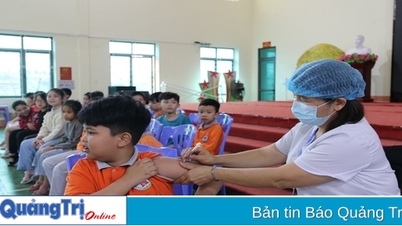
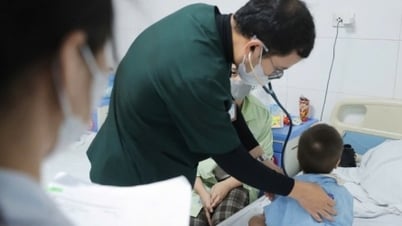
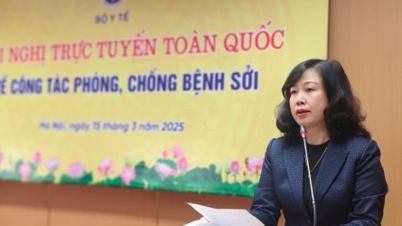
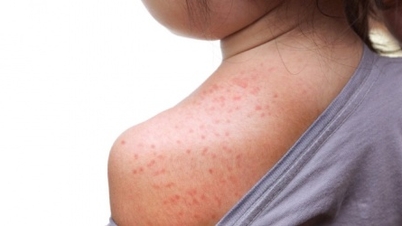
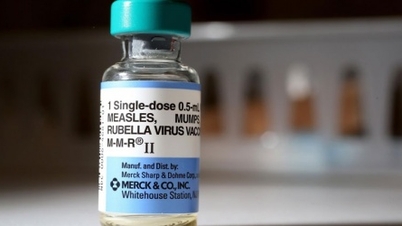


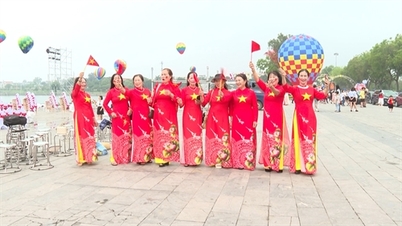









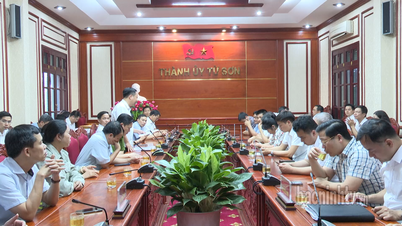





















































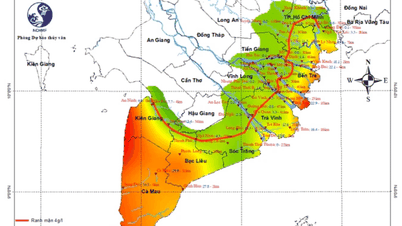















Comment (0)